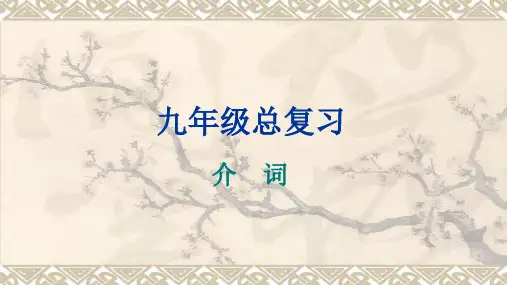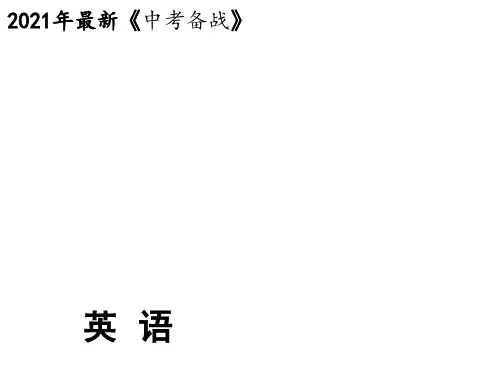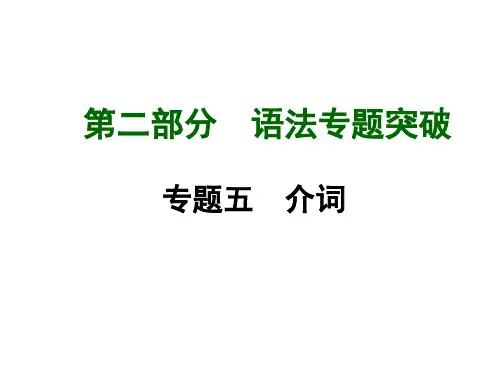介词
二、方位介词 1. at, in. (1) at 后通常接较小的地点,例:at home 在家, at the bus stop 在公共汽车站。 (2) in 后通常接较大的地点,例:in China 在中国, in the world 在世界上。
介词 2. in, on, to. (1) in 表示在某一范围内部;例:Shanghai is in the east of China. 上海在中国的东部。 (2) on 表示接壤;例:North Korea is on the east of China. 朝鲜在中国东面。 (3) to 表示不在范围内,也不接壤。例:Japan is to the east of China. 日本在中国东面。
介词
4. in, after. (1) in,是指以现在时间为起点的“在一段时间以后”,常用于一般将来时,
用how soon提问。例: He will be back in two days. 他两天以后回来。 (2) after,常指以过去时间为起点的“在一段时间以后”,常用于一般过去时, 用when提问。例: He left on Monday and arrived in Beijing after three days. 他星期一离开,三天之后到达了北京。
He didn’t go to bed until 11 o’clock last night. 昨晚他直到11点才睡觉。
介词
6. “by + 时间点”表示“到……时间为止”。 (1) 如果是将来的时间点,句子时态应用将来完成时。例:
We will have learned 500 words by the end of this term. 到这个学期末,我们将学会500个单词。 (2) 如果是过去的时间点,句子时态应用过去完成时。例: He had read three novels by last month. 截止到上个月,他已经读了三本小说了。



